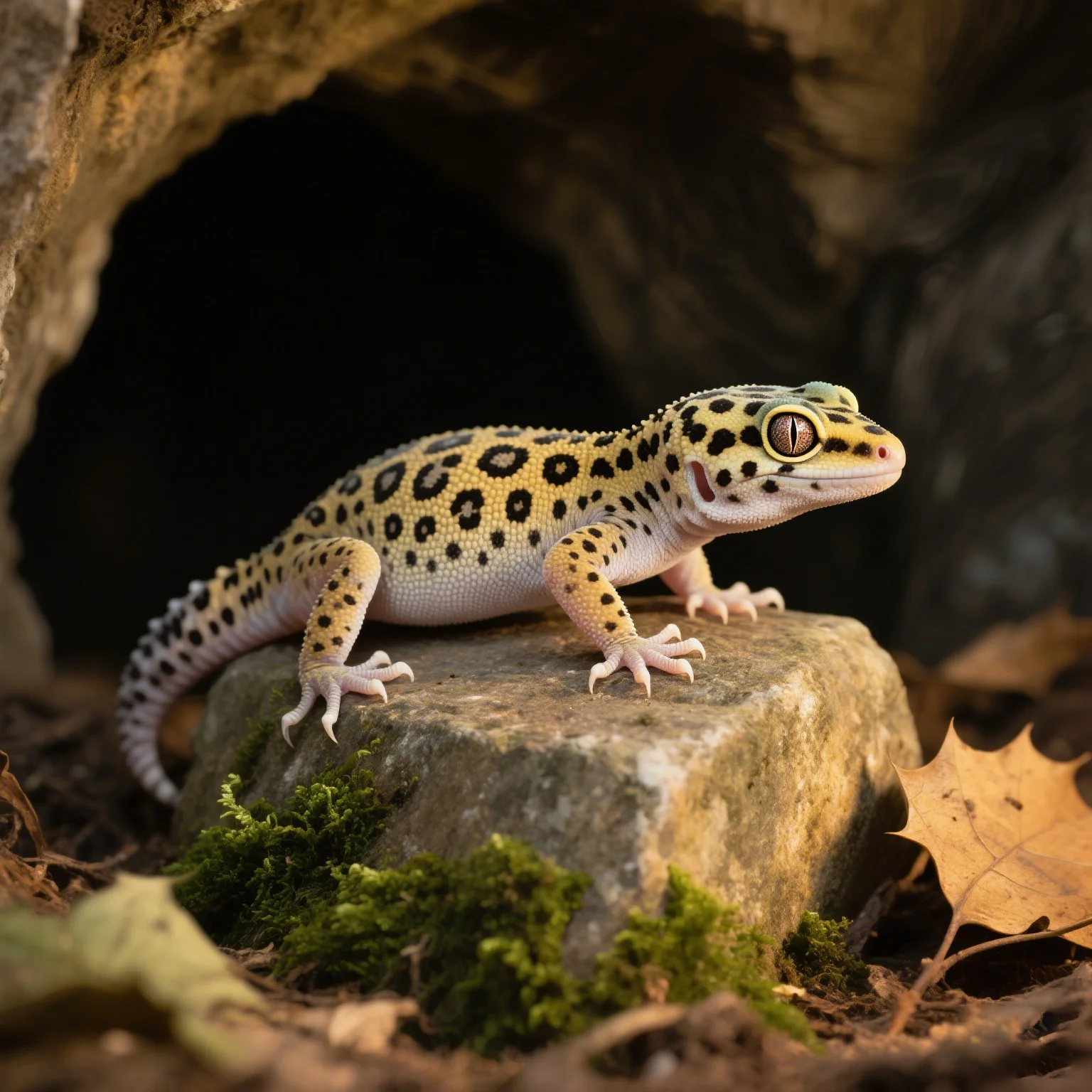
Reptile Husbandry
Is a Leopard Gecko a Good Pet?
Introduction: Considering a Leopard Gecko
Leopard geckos are among the most popular reptile pets, and for good reason. Their small size, manageable care requirements, and docile nature make them an excellent choice for first-time reptile owners. But does that mean they’re good pets for everyone? Let’s explore the Leopard Gecko care basics and what makes them such a beloved pet in the reptile community.
Did You Know? Leopard geckos can live over 20 years in captivity with proper care.
Pros: Why Leopard Geckos Make Good Pets
- Docile and Tolerant: Leopard geckos are known for their gentle disposition and ease of handling. They typically don’t mind being held by their owners, making them great for beginners and kids (with supervision).
- Small and Low-Maintenance: Leopard geckos grow to 7-10 inches and require smaller enclosures than many reptiles (e.g., 20-gallon long tank or larger). They are crepuscular and mainly active at dawn and dusk, fitting well with busy schedules.
- Straightforward Feeding: They eat readily available insects like crickets, mealworms, and dubia roaches. Thanks to efficient metabolisms, adults only need feeding every 2-3 days, while young geckos are fed daily.
- Clean and Odorless: Unlike some reptiles and mammals, leopard geckos do not produce much waste (which can be spot-cleaned), and they are odor-free when you keep their habitat clean. Spot cleaning should be done daily, and deep cleaning is recommended monthly.
- Minimal Special Requirements: Leopard geckos don’t need UVB lighting (though some keepers provide it for its benefits); they get their vitamin D3 from gut-loaded insects dusted with supplements.
Cons: Understand the Responsibilities
While leopard geckos are great pets, they aren’t maintenance-free. Consider these points:
- Live Insects: You must be comfortable handling and feeding living insects. Some people find this unpleasant, or allergies to feeders like crickets may be an issue.
- Supplimentation: Providing a balanced diet requires dusting insects with calcium and multivitamin powders. Skipping supplimentation leads to deficiencies, especially calcucim deficiency leading to metabolic bone disease. Learn More here
- Habitat Needs: The correct setup (heating pad, hides, substrate, and proper humidity) is crucial for digestion and overall health. Heat pads must be combined with appropriate thermostats to maintain belly heat at 88-92°F (31-33°C).
- Solitary Creatures:
Unlike some reptiles, leopard geckos must be housed individually to avoid territorial stress. - Health and Lifespan: Leopard geckos can live up to 20 years, making them a long commitment. Regular vet visits with an exotic pet vet are advised to check common conditions like impaction, parasites, or shedding issues.
Care Level: Medium and Manageable
While Leopard Geckos are not as demanding as some reptiles (e.g., Chameleons), their care requirements rank as medium complexity. Compared to other household pets:
- Easier than Dogs/Cats: No need for daily walks or constant attention. However, dogs and cats can be more independent. Leopard Geckos can stay alone for 2-3 days with proper setup (automatic feeders, water bowls).
- Comparable to Similar Reptiles: Similar to Bearded Dragon in diet (though dragons’ require more UVB and space), but easier than species like Chameleons with high humidity and specialized lighting needs.
Conclusion: Are They Right for You?
Yes, leopard geckos usually make good pets for novices and enthusiasts alike. They are particularly suitable for:
- First-time reptile owners and older children (under adult supervision).
- Apartment dwellers due to their manageable size and low noise.
- Busy people who prefer a pet less demanding than a dog or cat.
However, keep in mind that they are a long-term commitment, and feeding live insects is an essential part of their care. If their husbandry requirements seem manageable, you will enjoy many years with your fascinating little reptilian companion.
For further guidance, check out our detailed Leopard Gecko Pet Care Guide and other articles on Lopehare. Engaging with experienced keepers and Online Communities can also ensure your new pet thrives!